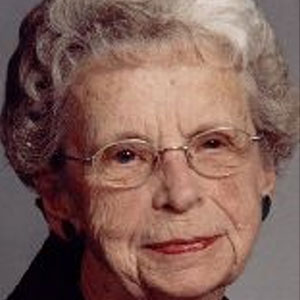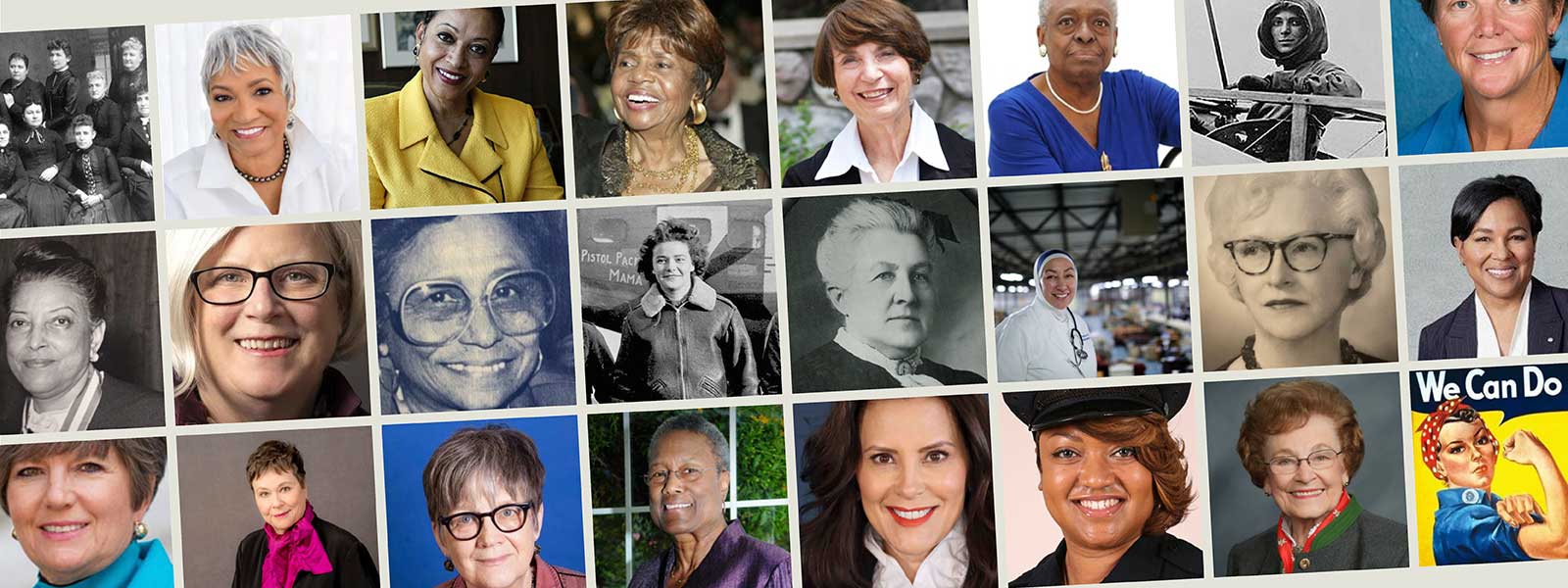Alice Scanlan Kocel

(1920 – 2017)
Alice Scanlan Kocel was born into an extended Iowa farm family whose faith required service for those in need. Her growing sense of social responsibility was encouraged by her high school English teacher. Two of her college summers were spent in Detroit in volunteer work with the Student Peace Service, a program of the American Friends Service Committee. Serving Polish immigrant and black migrant families made her keenly aware of the special needs of minorities and women.
In 1941, she joined her new husband, Ben, in Florida when he was called to active duty. Working in the Duval County Department of Welfare she saw the suffering imposed on blacks and elderly impoverished women by a segregated system. After the war, with three young daughters, Alice was active in the YWCA and PTA activities, and joined the campaign for an FEP law. During seven years of social work in Highland Park, she again saw the special needs of minorities and women.
In 1966, Alice became a Field Representative with the Michigan Department of Civil Rights investigating discrimination based on race, religion, color, national origin, age or sex. In 1969, Governor Milliken ordered a Review of employment opportunities for minorities and women in the state classified service. Alice became Coordinator of the Review, with staff from the Civil Service and Civil Rights departments.
After a meticulous on site study of the 21 state departments, the Review Team documented the dearth of minorities and women in upper level positions, concentration in clerical and low level service work, and virtual absence from positions sought by white men. During the Review, Alice was assigned as Liaison to the U.S. Equal Employment Opportunity Commission on a pilot program on systemic discrimination. In preparing the Final Report, she was able to draw on her EEOC training. The conclusion was that the denial of opportunities to minorities and women was systemic in state classified employment.
Despite strenuous opposition, in time Governor Milliken ordered a statewide Affirmative Action program to assure equal opportunity for minorities and women and created the Michigan Equal Employment Opportunity Council to oversee it. There have been and still are many challenges, but the progress is there for all to see.
Alice worked on the AA programs until she retired in 1985. Since then, she has volunteered with the ACLU, the YWCA, East Lansing Human Relations Commission, Women’s International League for Peace and Freedom, the Michigan Women’s Assembly, and the AARP Capital City Task Force.





